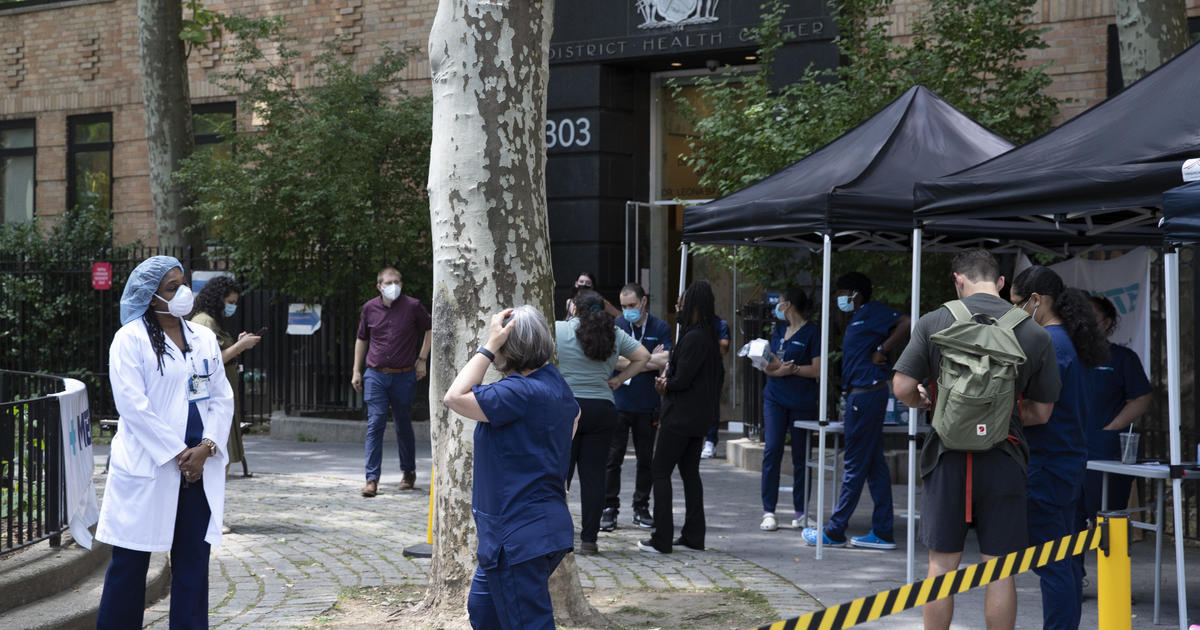
Should I be worried about monkeypox? A doctor answers questions as the outbreak spreads
CBSN
The World Health Organization said June 25 that monkeypox wasn't yet a public health emergency of international concern. More than 4,000 cases have been reported worldwide, with about 250 in the U.S. And with public health officials unable to follow all chains of transmission, they're likely undercounting cases. Everyone should be aware of its symptoms, how it spreads, and the risks of it getting worse.
The American public is currently at low risk for monkeypox. It is spreading among men who have sex with men, but it is only a matter of time before it spreads to others. As of June 27, the European Centre for Disease Prevention and Control had reported 10 cases among women. Monkeypox is generally a mild disease but can be serious or even deadly for people who are immunocompromised, pregnant women, a fetus or newborn, women who are breastfeeding, young children, and people with severe skin diseases such as eczema.

After years of unsuccessful attempts to finance and build a public alarm network that would warn residents of Kerr County, Texas, about dangerous flooding, officials in the region, nicknamed "flash flood alley," were going to start developing a centralized flood monitoring system this summer to help leaders and emergency managers plan ahead.

Washington — The Senate is expected to vote next week on a request from the White House to claw back funding for international aid and public broadcasting. But the funding for rural radio and television stations — sometimes an area's sole source for emergency warnings and other news — has sparked concern among some Senate Republicans, especially after the recent devastating flash floods in Texas.

A week before an expected committee vote on the controversial nomination of Trump ally Emil Bove for a federal judgeship, CBS News has obtained emails and text messages shared with Congress by a whistleblower who accuses Bove of unethical actions while he was a top Justice Department official this year.

French university courts American researchers seeking "scientific asylum" amid Trump's academic cuts
A university in France says nearly 300 American researchers have applied for a space in its "Safe Place for Science" program that was created to lure U.S. researchers seeking "scientific asylum" amid aggressive academic spending cuts and other actions against colleges by the Trump administration.





















 Run 3 Space | Play Space Running Game
Run 3 Space | Play Space Running Game Traffic Jam 3D | Online Racing Game
Traffic Jam 3D | Online Racing Game Duck Hunt | Play Old Classic Game
Duck Hunt | Play Old Classic Game







